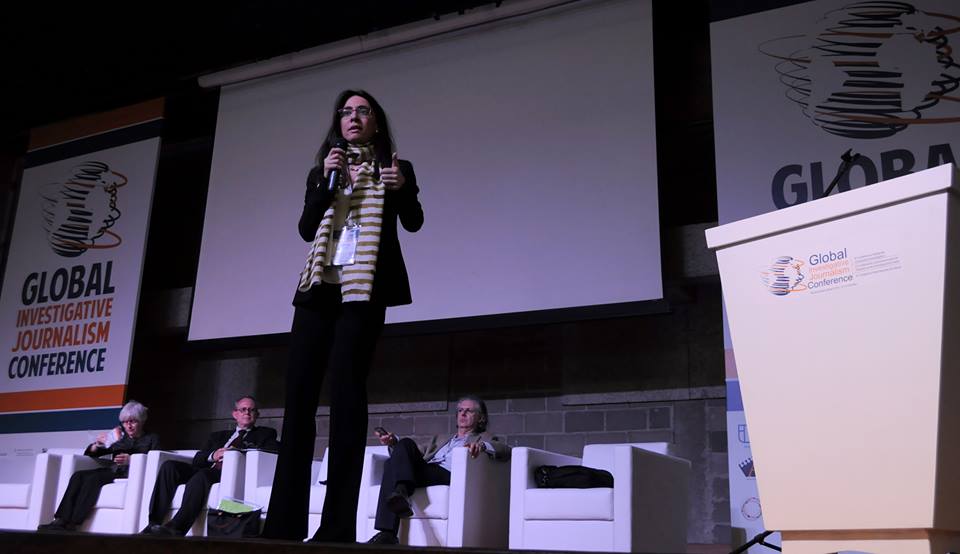 A democracy is measured by its citizens’ ability to speak freely, Catalina Botero, special rapporteur for freedom of expression at the Organization of American States, said yesterday during the opening plenary at the eighth biennial Global Investigative Journalism Conference.
A democracy is measured by its citizens’ ability to speak freely, Catalina Botero, special rapporteur for freedom of expression at the Organization of American States, said yesterday during the opening plenary at the eighth biennial Global Investigative Journalism Conference.
“Half the population doesn’t live in a democracy. The other ![]() 50 percent struggle to protect freedom of speech,” she said. “In the alleged democracies, the thermometer is free speech. And investigation journalism is the mercury.”
50 percent struggle to protect freedom of speech,” she said. “In the alleged democracies, the thermometer is free speech. And investigation journalism is the mercury.”
More than 800 reporters from nearly 90 countries have come together in Rio de Janeiro to attend nearly 150 panels, including tracks on academics, sports, organized crime and computer-assisted reporting.
“This is one of the most – if not the most – important meeting![]() of investigative journalists in the world,” said Frank La Rue, United Nations Special Rapporteur on the promotion and protection of the right to freedom of opinion and expression, who also spoke at the plenary. “It is important to protect journalists, especially those who do investigative journalism.
of investigative journalists in the world,” said Frank La Rue, United Nations Special Rapporteur on the promotion and protection of the right to freedom of opinion and expression, who also spoke at the plenary. “It is important to protect journalists, especially those who do investigative journalism.
Journalists face threats in the most democratic of countries, Botero, special rapporteur of the American States, said in her address. Some governments fight organized crime with a “war-like mentality.”
“And the journalist who criticizes them for abusing human rights or discuss corruption, the journalist is identified as an enemy,” she said. Reporters who do their job might face civil fines or jail. “This is a serious threat.”
The threat extends beyond direct fear of physical danger. Governments spy on reporters’ communications and Internet searches.
“We all know this happens at a large great scale in some countries,” she said. “The agencies’ job is to hack the journalists‘ accounts illegally. But nobody talks about this.”
